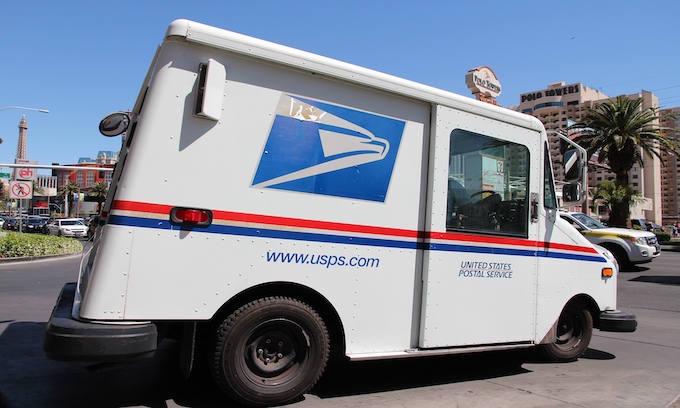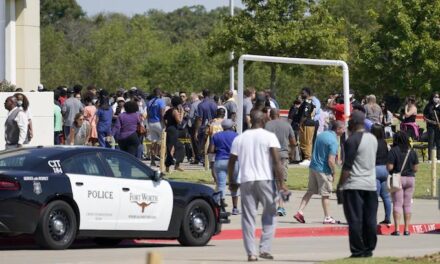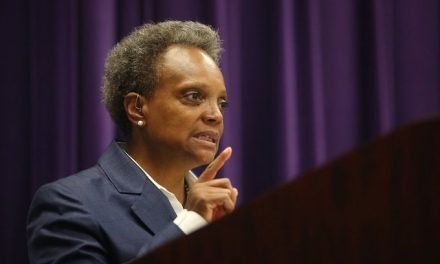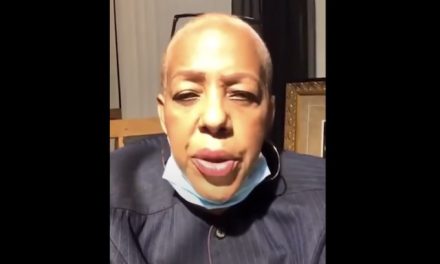A federal judge ruled Tuesday that all Texas voters are eligible to vote by mail to avoid contracting the novel coronavirus amid the pandemic.
U.S. District Judge Fred Biery sided with the Texas Democractic Party in his ruling Tuesday, and agreed that a fear of contracting the virus will limit citizens’ rights to vote in-person and a lack of immunity to COVID-19 “is indeed a physical condition.” Biery’s ruling allows voters under the age of 65 who would normally be ineligible for a mail-in ballot under Texas law to qualify for one.
“One’s right to vote should not be elusively based on the whims of nature. Citizens should have the option to choose voting by letter carrier versus voting with disease carriers,” Biery wrote in his ruling. “‘We the People’ get just about the government and political leaders we deserve, but deserve to have a safe and unfettered vote to say what we get.”
Biery heard arguments in the preliminary injunction hearing Friday in San Antonio, and his ruling is the latest in a slew of legal challenges in both state and federal courts challenging Texas’ vote-by-mail laws and restrictions. Civil rights groups and voters have raised concerns over voters flocking to potentially crowded polling places amid the outbreak to cast their ballot.
In order to qualify to vote by mail under Texas law, voters must submit an application and be 65 or older, disabled, out of the county on Election Day and during in-person early voting, or be eligible to vote but confined in jail.
The Texas Democratic Party argued that the current election conditions are unconstitutional and violate federal provisions by discriminating against voters who are under 65. It was a point Biery agreed with, citing that Texas’ vote-by-mail statute provides for the health and safety of voters over 65 without a disability, “but not those 64 years, 364 days and younger.”
“Today is a victory for all Texans. The right to vote is central to our democracy,” Texas Democratic Party Chair Gilberto Hinojosa said in a statement Tuesday celebrating the decision. “It is time for a few state officers to stop trying to force people to expose themselves to COVID-19 in order to vote.”
In a statement Tuesday night, Attorney General Ken Paxton vowed to appeal the ruling.
“The district court’s opinion ignores the evidence and disregards well-established law. We will seek immediate review by the Fifth Circuit Court of Appeals,” Paxton said.
Attorneys representing the state had argued that the issue should first be settled in state courts and had requested that Biery wait to first see how the Texas Supreme Court rules in the Texas Democratic Party’s lawsuit filed in state district court.
On Friday, Attorney General Ken Paxton had urged the Texas Supreme Court to immediately stay the 14th Court of Appeals 2-1 decision that upheld a lower court’s ruling. In April, state state district Judge Tim Sulak issued a temporary injunction allowing Texans who lack immunity to the novel coronavirus to cite the disability category under state law in order to request a mail-in ballot.
Paxton had said that his appeal of Sulak’s ruling meant the order was stayed — a point civil rights groups and organizations suing the state had pushed back on. The Texas Supreme Court sided with Paxton, and issued an emergency stay while it considered the issue. The Texas Supreme Court is set to hear arguments in the case Wednesday afternoon.
Paxton has repeatedly argued that while a person ill with COVID-19 would qualify for a mail-in ballot, a fear of contracting the virus would not meet the state’s eligibility requirements. And he has warned local officials that they could be subject to criminal sanctions if they advise voters who normally aren’t eligible to apply for mail-in ballots.
Attorneys for the state had also argued that allowing an expansion of mail-in ballot eligibility amid the pandemic would lead to an increase in voter fraud. During the hearing, Biery had questioned why allow mail-in ballots at all if that was the case.
Biery wrote in his ruling that in previous cases, the evidence had shown “there is no widespread voter fraud” and noted that his order will not prevent the Texas Secretary of State or local election officials from prosecuting cases of voter fraud “where evidence and probable cause exist.”
Early voting begins June 29 for the July 14 runoff elections.
___
(c)2020 the Fort Worth Star-Telegram
Visit the Fort Worth Star-Telegram at www.star-telegram.com
Distributed by Tribune Content Agency, LLC.
—-
This content is published through a licensing agreement with Acquire Media using its NewsEdge technology.



















Recent Comments